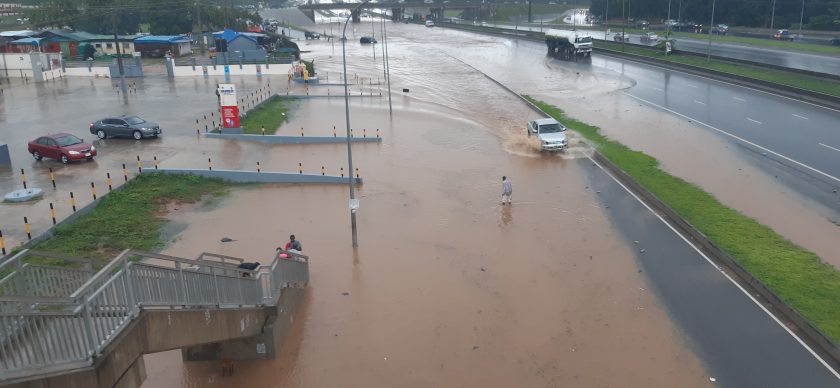Flooding has become an annual recurring phenomenon in Nigeria. It affects almost every part of the country, and becoming worse by the year. It has destroyed many lives, properties and critical infrastructures in almost every state in Nigeria.
Flooding is caused by the accumulation of water over dry land. It is the overflow of inland waters from rivers, streams and tidal waters or unusual accumulation of water from sources such as heavy rains and unmaintained dams and drainage.
There are four major types of floods – river flooding, coastal flooding, flash flooding and urban flooding. The most commonly occurring in Nigeria are flash floods and urban floods respectively.
Flash floods normally happen due to heavy rains over a short period of time (usually six hours or less), and it can happen almost everywhere. Although low lying areas with poor drainage system are particularly vulnerable. It can also occur due to unmaintained dams or levee breaks. Flash floods combine the innate hazards of a flood with speed and unpredictability and are responsible for the greatest number of flood-related human fatality.
On the other hand, urban floods are the floods that are caused when rain water overwhelms the drainage capacity of a densely populated area.
Considering the enormity of the damage caused by floods annually, all the three tiers of government should have focused more attention on this phenomenon. There should be a concrete and befitting plan on how to ameliorate and curtail its devastating effects. The vulnerable areas should be identified, analyzed and the level of threat ascertained. This will enable the stakeholders to put in place medium- and long-term measures to curtail its effect. These may include deploying considerable chunk of resources in building sufficient and efficient drainage networks that can easily drain any amount of water within a considerably short period of time. A strong legal framework should be put in place to prohibit misuse of the drainage, such as raising structures on them or dumping of refuse. A vigorous programme should also be embarked upon to enlighten and raise the awareness of the people on the dangers of blocking the drainage, as well as encourage them to be fully involved in their maintenance.
Also recommended is the building of new dams, so that excess flooding water can be channelled appropriately to where it can be cultivated and reserved for productive purposes. The water can be used for dry season farming, aquaculture and even for domestic use.
Usman Aliyu Elnafaty, DP 21, Fadamar Jaji Behind Federal Secretariat, Bauchi.



